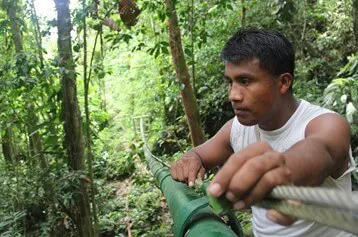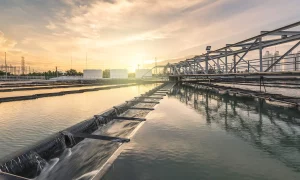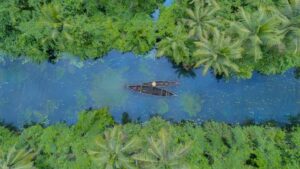Water Co-operation between Cultures: Partnerships with Indigenous Peoples for Sustainable Water and Sanitation Services
Indigenous peoples and ethnic minorities suffer lower levels of access to improved water and sanitation services due to socio-economic and cultural marginalization and geographical challenges. Lack of cultural sensitivity and operational limitations tend to render water and sanitation interventions less effective and services unsustainable.
The purpose of the article is to illustrate the need to build respectful, inclusive and long-term partnerships with rural indigenous peoples and ethnic minorities to improve sustainability of water and sanitation services and to overcome socio-cultural barriers to improved access.
Throughout the world, there are disparities in water and sanitation services coverage between indigenous and non-indigenous peoples. Poor and rural populations have significantly lower access to improved water and sanitation services, and indigenous peoples are over-represented among the poor. It is estimated that the indigenous peoples represent 15 per cent of the individuals living in poverty, but compose only some 5 per cent of the world population. In addition, indigenous peoples typically experience multiple dimensions of poverty, including under-nutrition and other deprivations related to health.
However, indigenous peoples’ lack of access to services is not sufficiently explained by higher levels of poverty or that they often live in remote rural areas. There are also social, cultural and political barriers that put indigenous peoples at disadvantage. The marginalization of indigenous peoples is worsened by their weak participation and lack of representation at higher political levels. As a result, indigenous peoples and ethnic minorities tend to benefit less from national development opportunities such as water and sanitation services, which also makes inequalities persist.
Field studies and action research realized in six communities in the Autonomous Regions of Nicaragua reveal the need to build inclusive and long-term partnerships, based on mutual respect and trust, between rural indigenous peoples and external agents to generate sustainable water and sanitation services. Indeed, the major need expressed by communities was that of increased respect from government and development agencies.
This article draws from the research ‘Transcultural Transparency: Exploring the Interface between Modern and Traditional Institutions in Sanitation and Water Supply’ which aimed to identify and explore ways to overcome socio-cultural barriers between indigenous communities, service providers, local authorities and development co-operation actors.




